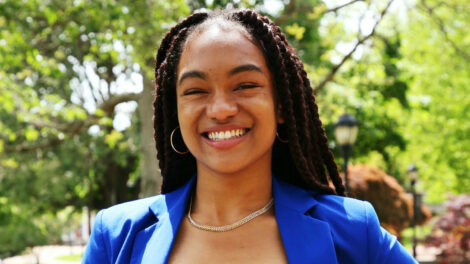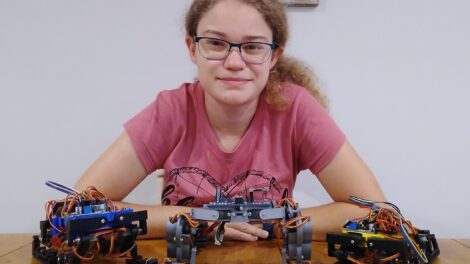Engineering students add entrepreneurship skills to their startup ideas
By Stephen Wilson
Has this ever happened to you?
A restless night’s sleep made worse by kicking covers down to the end of the bed? Well, no more. The BedBelt will securely keep that sheet and duvet in place no matter how you toss and turn.
How about this?
You are talking about some things you need, and the next thing you know, ads for those products begin to appear in your feeds? Rather than unplug your smart home speakers, it’s time for Data Defend, which works to protect your privacy and personal information.
These future infomercials are for products developed in Building the High Tech Startup, a course offered through the Engineering Studies program.
Taught by Sandy Furnbach Clavijo ’03, the course provides engineering students with the skills to transform ideas into products and services by improving knowledge of customers, markets, sales, finance, strategic planning, and presenting skills.
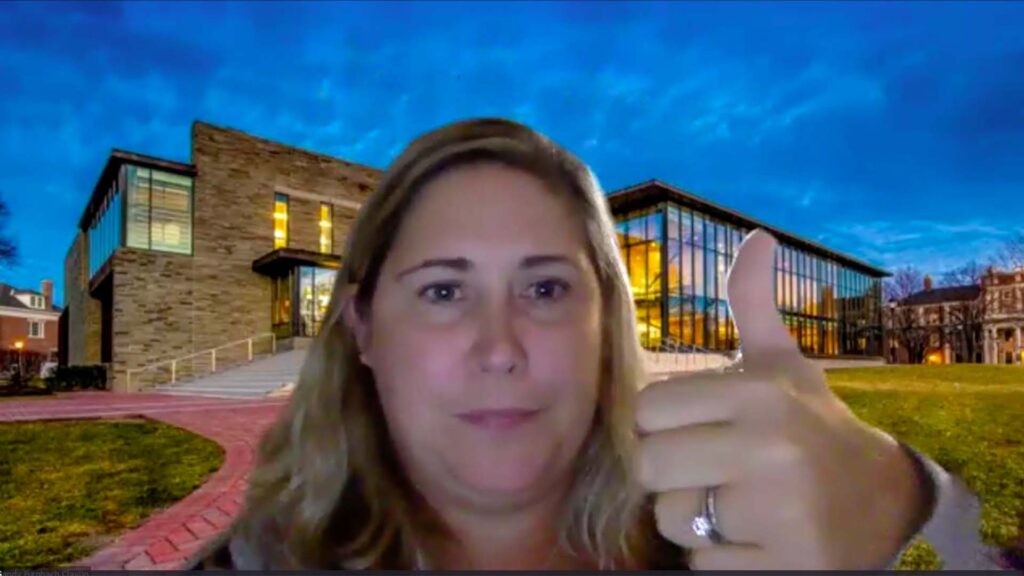
Sandy Furnbach Clavijo ’03
All of that was on display at the end of the semester as teams of students presented their prototypes via explainer videos. In addition to BedBelt and Data Defend, the young entrepreneurs developed solutions for ineffective Zoom breakout rooms, computer recycling, food recovery, sustainable clothing, and bartering across resident halls.
The viability of these services hinged on each team’s understanding of key principles that Clavijo has been developing and using for years.
After graduating from the College with a dual degree in civil engineering and international affairs, Clavijo worked as a project engineer in urban land development before earning a master’s in engineering management. Today, she works in the school of engineering and sciences at Stevens Institute of Technology as director of core education at the Center for Student Success.
She also teaches courses on innovation and entrepreneurial thinking at Stevens and, currently, is earning a doctorate in education from Drexel.
In addition to her background, Clavijo relied on noted Lafayette peers to help convey important concepts to students. To bring guest speakers to class, she drew on the relationships between alumni and the Dyer Center for Innovation and Entrepreneurship.
“The Dyer Center was happy to partner with Prof. Clavijo and leverage our alumni network to add context to the course material and open some of the discussions to the larger campus community interested in the topics,” says Yusuf Dahl, director of the Dyer Center.
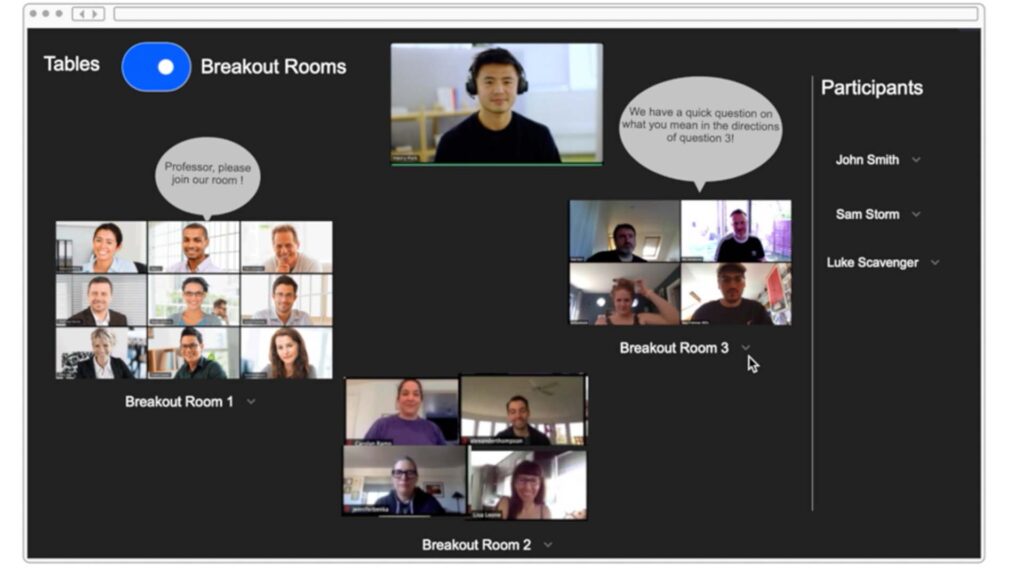 Guests included Jaime Getto ’13, founder of startups Nowaday and Reposite, who discussed her entrepreneurial journey; Rob Delaney ’12, vice president at Carrick Capital Partners, who discussed venture capital; Gil Ozir ’96, managing partner at Beringer Capital, who discussed the fundamentals of private equity; and Bill Wagner ’89, president and CEO of LogMeIn, who discussed the future of work.
Guests included Jaime Getto ’13, founder of startups Nowaday and Reposite, who discussed her entrepreneurial journey; Rob Delaney ’12, vice president at Carrick Capital Partners, who discussed venture capital; Gil Ozir ’96, managing partner at Beringer Capital, who discussed the fundamentals of private equity; and Bill Wagner ’89, president and CEO of LogMeIn, who discussed the future of work.
“I always enjoy teaching entrepreneurship to students, especially students with technical backgrounds,” says Clavijo. “But it was truly special to be back home teaching at a place that has meant so much to me.”
“We like having professors of practice teach courses that bridge the academic and nonacademic worlds,” says Ben Cohen, chair of engineering studies and associate professor. “So having Prof. Clavijo contribute this course has been great for our students. It’s part of an interdisciplinary curriculum that brings economic, political, and technical factors together, showing what it takes for technologies to meet social needs and serve the broader social good.”
Billy Prebola ’22, whose team created the Food Connections app to aid in food recovery, signed up for the course based on his desire to learn what it takes to be successful when starting up one’s own company.
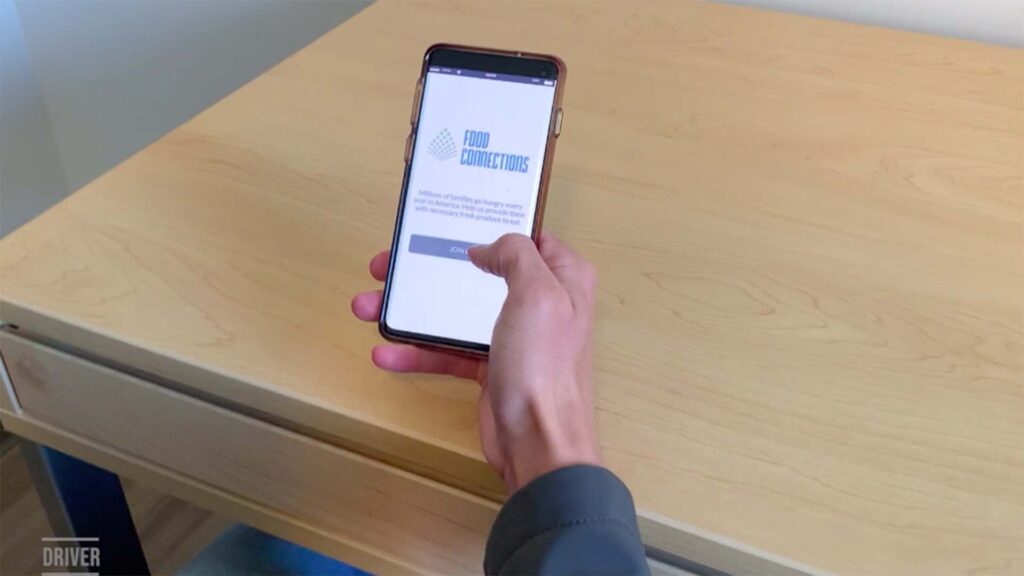 “Working well with others and communicating well is essential to being successful,” he says, “as well as solving one problem at a time.”
“Working well with others and communicating well is essential to being successful,” he says, “as well as solving one problem at a time.”
As for big ideas, Prebola now sees that invention is different from innovation. “You do not need to recreate the wheel when trying to start up a company,” he says. “Sometimes all it takes is finding a common problem in a specific area and focusing on solving that specific problem.”
This is exactly what Clavijo and her students wanted.
“Many were curious about what it takes to get started and admitted they never find the time outside of class,” she says. “The best part for the students was being able to work on a new idea and actually try out the lean-startup method all semester. They appreciated having room for failure and growth, and learning through an iterative process on their own idea.”

 Guests included
Guests included  “Working well with others and communicating well is essential to being successful,” he says, “as well as solving one problem at a time.”
“Working well with others and communicating well is essential to being successful,” he says, “as well as solving one problem at a time.”